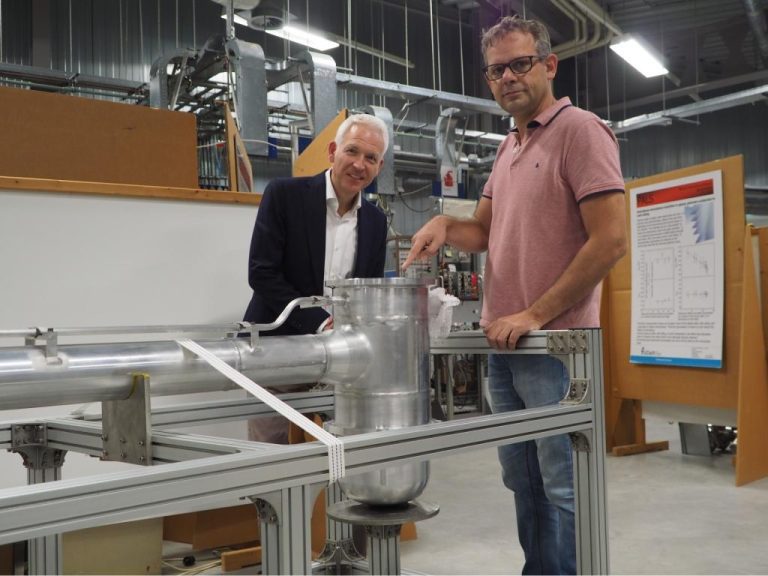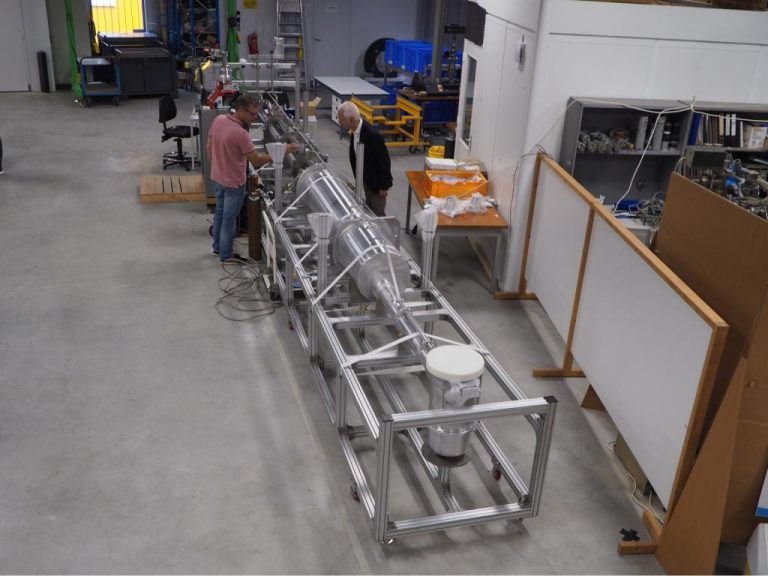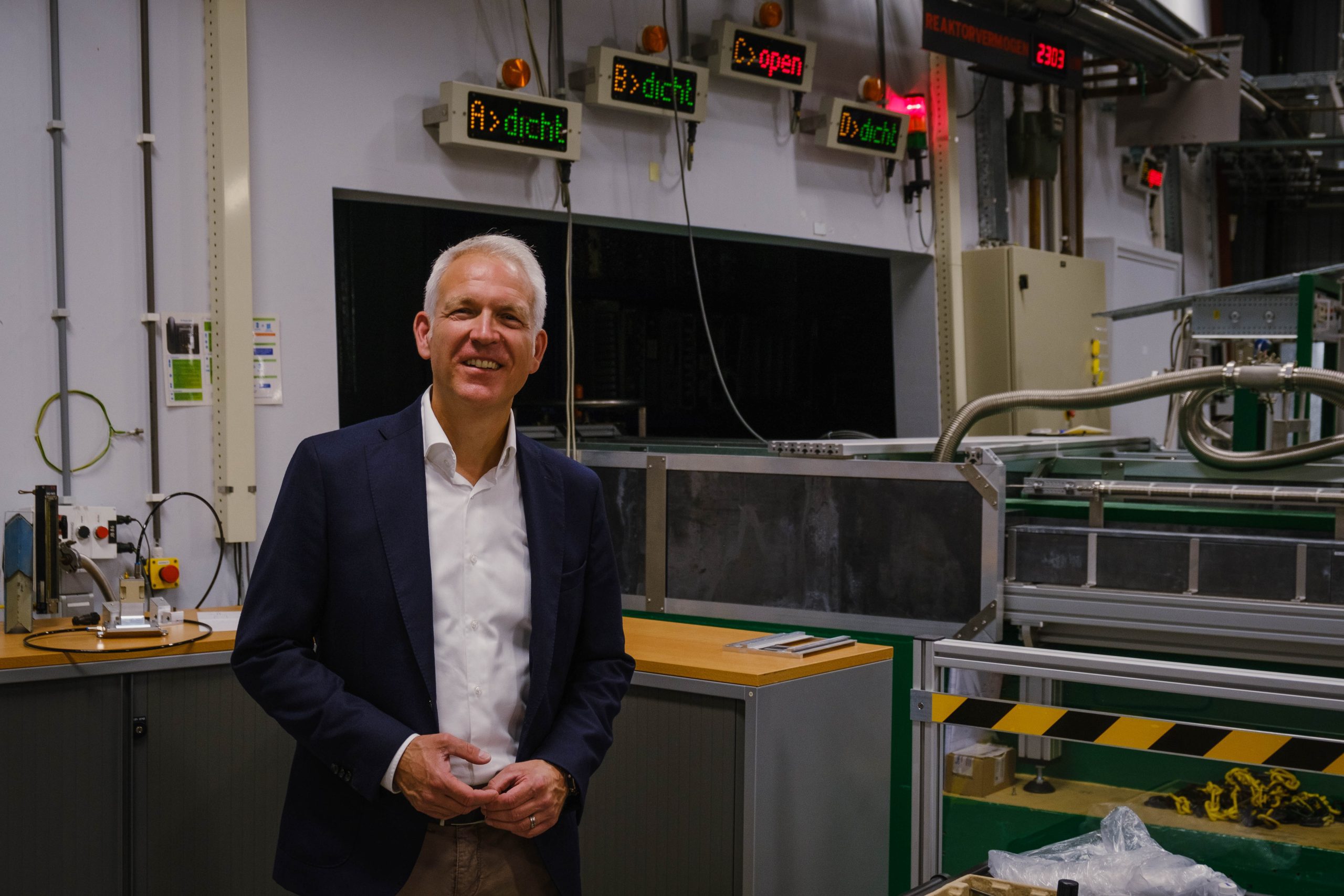In mid-October, the research reactor will be shut down for six months to install the cold source. “We can soon do something unique in the Netherlands,” says Director Koppers.
Wim Koppers has been the new director of the TU Delft Reactor Institute since 1 September. (Photo: Jaden Accord)
Dr Wim Koppers (1969) took office as the Director of the TU Delft Reactor Institute on 1 September. While doing his doctorate at AMOLF at the University of Amsterdam, he discovered that doing research himself was not really his thing. Instead, he opted for management positions at research institutes such as Philips Research (Eindhoven), FOM (Rijnhuizen) and Differ (Eindhoven). For the past three years, he led the Biomedical Engineering Faculty at TU Eindhoven. By moving to TU Delft, he rejoins a research institute. “Research is a pleasant working environment for me. Personally, I prefer to fulfil a bridging function, serving the research. I am the one in the background who makes sure everything runs smoothly.”
You were keen to give an interview to Delta. Do you have a message for the TU Delft community?
“Not only to the TU Delft community but also more broadly. We are facing an exciting six months. In mid-October, the reactor will be shut down to install the IPA, the In-Pool-Assembly. This contains the cold source that will be placed at the bottom of the pool next to the reactor and it has all the connections for hydrogen, helium and vacuum needed.”
What does that entail?
“The cold source greatly decelerates neutrons from the reactor, improving the resolution of our measurements by a factor of 100. This is completely unique in our country. And that is the message I want to give here: come, look, and come and measure here. We will show examples of what we can do for neutron research on our website.”
When do you expect the inauguration?
“The reactor will be removed in two weeks’ time, and I think we should be ready in the second quarter of 2024. We are now meeting almost fortnightly with the Koreans who built the device and with the German subcontractor.”
A leak was found the previous two times. Has that been fixed now?
“Yes, the welds have been checked. So far, all the tests have passed well. By the way, we want to start producing a spare copy soon in cooperation with TU Delft’s own DEMO engineering department. Aluminium welders are already working on their certification there.”
Who will use the neutron set-ups?
“We naturally do our own research in materials science, nuclear chemistry such as medical isotopes and battery development. In addition, external researchers can also book bundle time. You can already do this through RID’s website.”
Finally, where will the TU Delft Reactor Institute be in five years’ time?
“I see promising collaborations developing with the European Spallation Source ESS in Sweden. This partnership will enable us to play a coordinating role for other Dutch universities that want to do neutron research. Thus, we hope to create some leverage by collaborating with other universities.”
- Read more background in Delft reactor active again, but key piece missing (February 2022)


Director Wim Koppers and head of reactor development Camiel Kaaijk inspect the cold well (above) and the rest of the In Pool Assembly. (Photos: Jos Wassink)
Do you have a question or comment about this article?
j.w.wassink@tudelft.nl


Comments are closed.